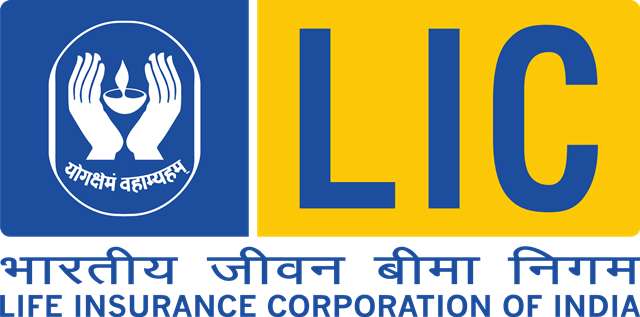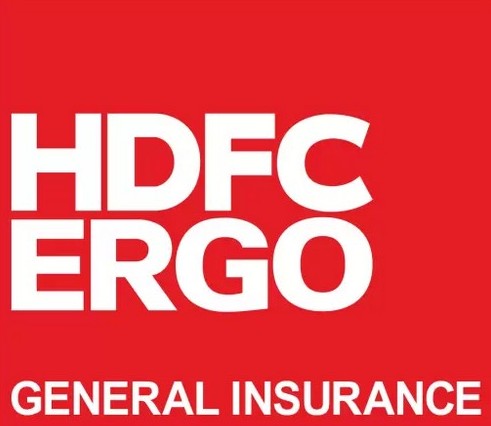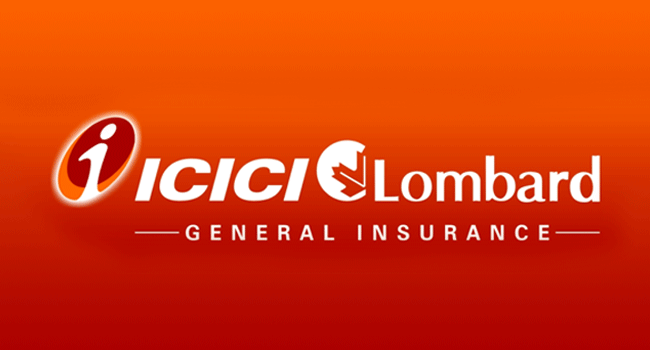Latest claim settlement ratio of health and general insurers released by IRDAI in 2026: Acko, Aditya Birla, Galaxy lead; Shriram, IFFCO Tokio fall below 90%
When it comes to health and general insurance policies, policyholders expect prompt claim settlements from insurers in times of emergency. The real test of any insurance policy lies in how fairly and quickly claims are settled. To gauge an insurer's efficiency, checking the claim settlement ratio is a reliable way. The Insurance Regulatory and...
The Supreme Court has stayed an order directing an insurer to pay Rs 82.80 lakh to cricketer S Sreesanth on account of an injury he sustained during the Indian Premier League (IPL) 2012.
The Supreme Court has stayed an order by the National Consumer Disputes Redressal Commission (NCDRC) that directed an insurance company to pay Rs 82.80 lakh to a company that had contracted players for the Indian Premier League (IPL) team Rajasthan Royals. The claim was made due to a knee injury suffered by cricketer S Sreesanth during a practice...
Aviva has launched a private clients unit through an expansion into the Lloyd’s of London market.
Aviva has launched Aviva Private Clients, a new initiative that marks a significant expansion of its high-net-worth insurance business into the Lloyd's of London market. This move gives Aviva a wider operating scope, enabling it to handle complex risks and cater to affluent clients with diverse asset holdings across multiple countries and...
A consumer forum has ordered an insurance company to provide compensation due to a delay in settling a claim.
The Ernakulam District Consumer Disputes Redressal Commission has ordered United India Insurance Company to pay a compensation of Rs 35,000 to a policyholder, Jabeen L Zacharias, due to a delay in settling her claims and deficiency in service. The compensation includes payment for deficiency in service and unfair trade practice. Zacharias had...
Aviva Awards €140,000 to 58 Charities Across Ireland
The Aviva Broker Community Fund has awarded a total of €140,000 to 58 charity and community organizations across Ireland. The fund, now in its eighth year, enables brokers and financial advisors to nominate causes that make a real difference in their communities. This year, 155 entries were received from brokers and financial advisors nationwide,...
PGIM India Asset Management has attracted interest from Groww and Edelweiss.
Prudential Financial's asset management business in India, PGIM India Asset Management, has received acquisition proposals from at least two domestic firms, according to sources cited by Bloomberg. Groww Asset Management, backed by State Street Investment Management, and Edelweiss Asset Management have each submitted bids for the company....
The annual premium for the Chief Minister’s Comprehensive Health Insurance Scheme (CMCHIS) exceeds ₹1,200 crore, which is paid to the insurance company.
The Chief Minister's Comprehensive Health Insurance Scheme (CMCHIS) in India's Tamil Nadu state has provided health insurance benefits to over 1.45 crore families. The state government has paid an annual premium of ₹1,237.80 crore to the United India Insurance Company, which includes ₹1,173.66 crore for the coverage period from January 11, 2026,...

No Results Found
The page you requested could not be found. Try refining your search, or use the navigation above to locate the post.

Star Health under IRDAI scrutiny over health insurance claim settlement practices
The Insurance Regulatory and Development Authority of India (IRDAI) has discovered significant lapses in the claim settlement practices of Star Health and Allied Insurance, a stand-alone health insurer. The regulator is likely to take action against the company, although official investigations are still ongoing. IRDAI has also scrutinized 8-10...
Non-life insurers record 2% premium growth in September, Bajaj Allianz General Insurance leads the way
The non-life insurance sector in India has reported a modest 1.94% year-on-year growth in gross direct premium to Rs 23,430 crore in September. This growth was driven primarily by an increase in standalone health insurance premiums. The largest general insurer, New India Assurance, saw a 3.5% rise in premiums, while ICICI Lombard General...
AHPI issues notice to Star Health Insurance, warns of suspension of cashless services from September 22, 2025 – Express Healthcare
The Association of Healthcare Providers India (AHPI) has issued a notice to Star Health Insurance, warning of a potential suspension of cashless services starting from September 22, 2025. This move is likely a result of unresolved issues between the two parties, although the specific reasons behind the notice are not explicitly stated. As a...
Healthcare providers’ body demands immediate restoration of cashless services by Star Health Insurance
The Association of Healthcare Providers (AHPI) has suspended cashless services in several hospitals across India, including prominent chains like Care Hospitals, Manipal Hospital, and Max Hospitals, among others. This move is in response to a dispute with Star Health Insurance, one of the leading health insurance companies in the country. AHPI...
Rising Health Insurance Complaints in India: Key Data Insights
Complaints against health insurers in India are on the rise, indicating growing consumer awareness and the importance of effective grievance redressal mechanisms. According to Insurance Samadhan, a grievance platform, there was a 45% increase in complaints in Q2 2025 compared to the previous quarter, with 974 cases involving claims worth over...
Sharp premium drop hits general insurers in August; New India Assurance down 47% MoM
The Indian insurance sector experienced a decline in premium collections in August, with several leading insurers reporting sharp drops on a month-on-month (MoM) basis. In the general insurance segment, New India Assurance saw the steepest decline, with premiums falling 47% MoM to ₹2,197 crore. However, the company attributed this drop to the...
HDFC Ergo and Tata AIG have joined other insurers in reducing distributor commissions.
The Indian government has introduced a significant change in the Goods and Services Tax (GST) on individual health and life insurance premiums, reducing it from 18% to 0% effective September 22, 2025. However, this change also means that insurance companies can no longer claim Input Tax Credit (ITC) on services such as brokerage and commission...

Aviva has appointed a new member to the board of its master trust.
Several appointments have been made in the financial and pension industry. Aviva has announced three new appointments to the Aviva Master Trust board, including Rita Butler-Jones, Fiona Matthews, and Rekha Owen. Aviva Investors has also appointed Anna Chong and Michalis Ditsas to its global fixed income team. Gillian Taberner has been appointed...
Aviva India has launched a Preventive Care Program aimed at supporting rural communities in Uttarakhand, as reported by the Garhwal Post.
Aviva India, a leading insurance company, has launched a Preventive Care Program to support rural communities in Uttarakhand. The program aims to provide healthcare services and promote health awareness among the rural population, particularly in the Garhwal region. The initiative is part of Aviva India's corporate social responsibility (CSR)...
Aviva Life Insurance has been awarded Product of the Year 2025 in two categories: Retirement Income and Unit Linked Insurance Plans (ULIP).
Aviva Life Insurance, a leading private life insurance company in India, has been awarded the prestigious Product of the Year 2025 title in two key categories: Life Insurance – Retirement Income and Life Insurance – ULIP. The recognition was based on a nationwide consumer survey conducted by NielsenIQ, as part of the 17th edition of Product of...
Tata Consultancy Services (TCS) has expanded its partnership with Aviva in the UK.
Tata Consultancy Services (TCS) has expanded its partnership with Aviva, a leading insurance, wealth, and retirement provider in the UK. As part of the agreement, TCS' subsidiary, Diligenta, will manage an additional 1.1 million Aviva policies in the UK, bringing the total number of policies managed to 6.5 million. The expanded partnership aims...
TCS Strengthens Partnership with Aviva UK to Enhance Life and Pensions Customer Experience – FF News | Fintech Finance
Tata Consultancy Services (TCS) has strengthened its partnership with Aviva UK, a leading insurance company, to enhance the life and pensions customer experience. The partnership aims to leverage TCS' technology expertise and Aviva's industry knowledge to create a more seamless and personalized experience for Aviva's customers. As part of the...
Tata Consultancy Services (TCS) has expanded its partnership with UK-based investment firm Aviva, taking on the management of an additional 1.1 million policies.
Tata Consultancy Services (TCS) has strengthened its partnership with UK-based investment firm Aviva to manage an additional 1.1 million policies. This expansion is part of a long-standing relationship between the two companies, with TCS already handling a significant portion of Aviva's policy administration. Under the terms of the agreement, TCS...
Tata Consultancy has expanded its partnership with Aviva.
Tata Consultancy Services (TCS) has announced an expansion of its partnership with Aviva UK, a leading insurance, wealth, and retirement provider in the UK. The partnership will see TCS' subsidiary, Diligenta UK, manage over 6.5 million policies on behalf of Aviva, including an additional portfolio of life insurance business. This expansion is a...

From Crisis Cover To Daily Care: How Health Insurance Became A Real Life Partner
The insurance industry has undergone a significant transformation, shifting from a reactive model to a proactive one. According to Sanjiv Bajaj, joint chairman and managing director of Bajaj Capital, insurance is no longer something that individuals hope to never use. Instead, it has become a tool that people engage with regularly, not just for...
Jammu and Kashmir government constitutes UT-Level Insurance Committee to enhance insurance coverage
The Government of Jammu and Kashmir has established a Union Territory Level Insurance Committee (UTLIC) to oversee the implementation of the UT Insurance Plan. This committee aims to increase insurance awareness and penetration throughout the Union Territory. The decision was formalized through a government order issued by the General...
A tug-of-war is brewing over cashless health insurance, posing a potential threat to policy holders.
A recent standoff between hospitals and health insurance providers in India has raised concerns among policy-holders about the availability of cashless health insurance services. The Association of Healthcare Providers of India (AHPI) had advised its member hospitals to suspend cashless services provided by Bajaj Allianz, citing issues such as...
CRED has expanded its insurance network by partnering with Bajaj Allianz, Tata AIG, and United India on its garage platform.
CRED, a fintech company, has expanded its motor insurance offerings on its CRED Garage platform by partnering with three new insurance providers: Bajaj Allianz General Insurance, Tata AIG, and United India Insurance. This brings the total number of insurance providers on the platform to seven, including existing partners ACKO, ICICI Lombard,...

Aditya Birla Sun Life Insurance introduces dividend-yielding Unit Linked Insurance Plans (ULIPs)
Aditya Birla Sun Life Insurance has introduced a new fund called Dividend Yield Fund, which will be available under its existing Unit-Linked Insurance Plans (ULIPs). The fund aims to invest primarily in top Indian companies that consistently pay dividends, providing policyholders with a stable source of income. The fund will allocate 80-100% of...
Preventive care is becoming a priority in Indian health insurance, according to Mayank Bathwal of ABHI.
The healthcare costs in India are rising, and as a result, preventive care is becoming a key focus for insurers. Despite progress in coverage, over 60% of healthcare expenses are still borne directly by households, highlighting gaps in traditional insurance models. Mayank Bathwal, CEO of Aditya Birla Health Insurance, explains that conventional...
Preventive care is gaining prominence in Indian health insurance, according to Mayank Bathwal of ABHI.
The rising healthcare costs in India have led to a shift in focus towards preventive care, particularly in addressing the significant out-of-pocket spending burden on households. Despite progress in coverage, over 60% of healthcare expenses are still borne directly by households, highlighting the gaps in traditional insurance models. Mayank...
Policybazaar introduces a 100% claim settlement option for planned hospitalisations on select health insurance policies.
Policybazaar, a leading insurance marketplace, has introduced a 100% claim promise on planned hospitalizations for select health insurance policies. This initiative aims to provide a hassle-free and cashless experience for policyholders, ensuring zero deductions on eligible hospital bills. The benefit is available on specific plans from Bajaj...
On October 8, 2025, insurance agents and associations are likely to raise the issue of Goods and Services Tax (GST) with the Insurance Regulatory and Development Authority of India (IRDAI) and the Finance Ministry.
The insurance industry in India is facing a significant issue related to the Goods and Services Tax (GST) and Input Tax Credit (ITC). Private insurers have reduced distributor payouts by 15-18% to offset the loss of ITC, following the GST exemption on life and health insurance premiums. This move is expected to have a significant impact on...
National Insurance Awareness Day: Insurers Increasingly Invest in Wellness as Health Plans Undergo Transformation
The health insurance landscape in India is undergoing a significant transformation, shifting from a traditional safety net for emergencies to a wellness partner that encourages policyholders to adopt healthier lifestyles. Insurers are now incorporating wellness-linked benefits into mainstream health plans, using digital tools such as...
The latest claim settlement ratio of health and general insurance companies was released by IRDA in 2025. According to the data, Navi and Acko have taken the lead, while Star Health and Zuno have fallen below the 90% mark.
The rising medical inflation has made it challenging for individuals to bear medical expenses without a comprehensive health insurance policy. In India, the Insurance Regulatory and Development Authority (IRDAI) releases an annual list of claim settlements by health and general insurance companies. The claim settlement ratio, which refers to the...

No Results Found
The page you requested could not be found. Try refining your search, or use the navigation above to locate the post.

Two-wheeler insurance scam: Rs 80 crore duped from 25,000 victims
A massive insurance fraud racket has been uncovered in Ghaziabad, India, with over 25,000 people falling victim to the scam. The fraud, which involves vehicle insurance, has a financial impact of more than Rs 50 crore (approximately Rs 80 crore) in Ghaziabad alone, with 128 people from the city affected. The scam was busted by the Ghaziabad Cyber...
Non-life insurers record 2% premium growth in September, Bajaj Allianz General Insurance leads the way
The non-life insurance sector in India has reported a modest 1.94% year-on-year growth in gross direct premium to Rs 23,430 crore in September. This growth was driven primarily by an increase in standalone health insurance premiums. The largest general insurer, New India Assurance, saw a 3.5% rise in premiums, while ICICI Lombard General...
Non-life insurers record 5% premium growth in June, data reveals
The Indian general insurance industry has witnessed a mixed performance in terms of premium growth, with some insurers reporting significant increases while others saw declines. New India Assurance, the largest general insurer, led the pack with a 10.6% year-over-year (YoY) increase in premiums to Rs 3,328 crore. This growth is notable, given the...
Sharp premium drop hits general insurers in August; New India Assurance down 47% MoM
The Indian insurance sector experienced a decline in premium collections in August, with several leading insurers reporting sharp drops on a month-on-month (MoM) basis. In the general insurance segment, New India Assurance saw the steepest decline, with premiums falling 47% MoM to ₹2,197 crore. However, the company attributed this drop to the...
HDFC Ergo and Tata AIG have joined other insurers in reducing distributor commissions.
The Indian government has introduced a significant change in the Goods and Services Tax (GST) on individual health and life insurance premiums, reducing it from 18% to 0% effective September 22, 2025. However, this change also means that insurance companies can no longer claim Input Tax Credit (ITC) on services such as brokerage and commission...
CRED has expanded its insurance network by partnering with Bajaj Allianz, Tata AIG, and United India on its garage platform.
CRED, a fintech company, has expanded its motor insurance offerings on its CRED Garage platform by partnering with three new insurance providers: Bajaj Allianz General Insurance, Tata AIG, and United India Insurance. This brings the total number of insurance providers on the platform to seven, including existing partners ACKO, ICICI Lombard,...
